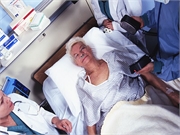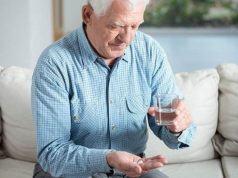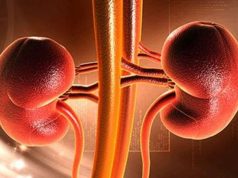Maintenance dialysis patients have better acute survival, better odds of favorable neurological status
TUESDAY, Jan. 7, 2020 (HealthDay News) — For patients with in-hospital cardiac arrest (IHCA), survival outcomes are similar for those on maintenance dialysis and nondialysis patients, according to a study published online Jan. 7 in the Clinical Journal of the American Society of Nephrology.
Monique Anderson Starks, M.D., from Duke University Medical Center in Durham, North Carolina, and colleagues examined the association of IHCA and outcomes by dialysis status among patients with end-stage kidney disease receiving maintenance dialysis from 2000 to 2012 and matched nondialysis patients. Data were included for 31,144 Get-With-The-Guidelines Resuscitation registry patients, 27.2 percent of whom were maintenance dialysis patients.
The researchers found that dialysis patients were less likely to have a shockable initial rhythm than nondialysis patients (19.8 versus 20.7 percent). Lower composite scores for resuscitation quality (88.9 versus 89.7) and lower likelihood of defibrillation within two minutes (53.9 versus 58.2 percent) were seen for maintenance dialysis patients. After adjustment, compared with nondialysis patients, maintenance dialysis patients had similar adjusted odds of survival to discharge (odds ratio [OR], 1.05; 95 percent confidence interval [CI], 0.97 to 1.13), had better acute survival (OR, 1.33; 95 percent CI, 1.26 to 1.40), and were more likely to have favorable neurological status (OR, 1.12; 95 percent CI, 1.04 to 1.22).
“Our study suggests that cardiopulmonary resuscitation is not a futile intervention in dialysis patients with IHCA,” the authors write.
One author disclosed financial ties to the pharmaceutical industry.
Abstract/Full Text (subscription or payment may be required)
Editorial (subscription or payment may be required)
Copyright © 2020 HealthDay. All rights reserved.








